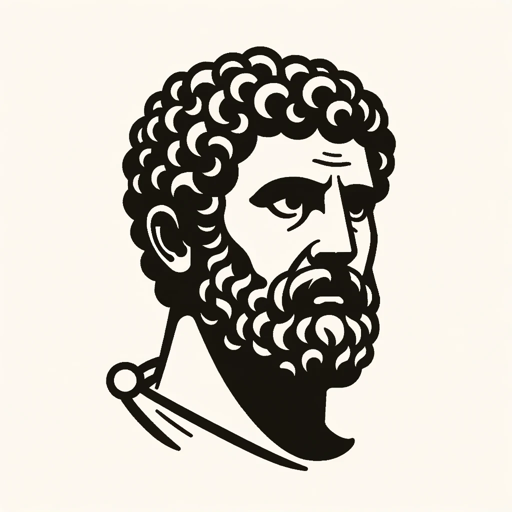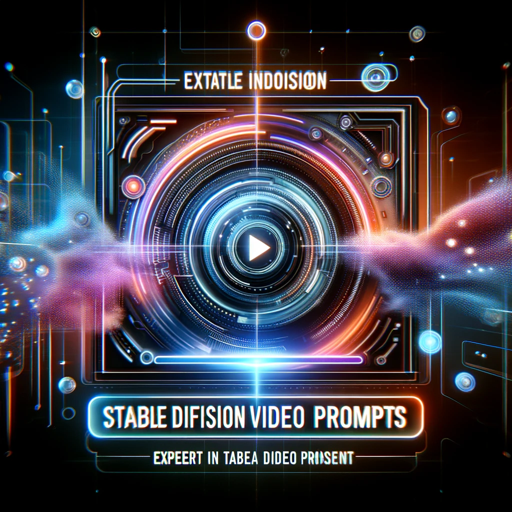Modern-Day Augustine-comprehensive theological insights and biblical studies.
AI-powered theological exegesis and insights.
Breakdown Romans 8:28's view on God's sovereignty.
Walkthrough the Exodus story, focusing on the plagues.
Analyze the Beatitudes within first-century Judea.
Explain 'justification by faith' in Galatians.
Interpret the Good Samaritan parable's context.
Exegete Genesis 1:1-2, focusing on 'create.'
Reflect on Psalm 23's comfort today.
Compare wisdom in Proverbs and Ecclesiastes.
Contrast Calvinist and Arminian predestination views.
Contextualize Paul's letter within the Judaizers' controversy.
Evaluate moral influence versus penal substitution atonement.
Related Tools
Load More
Jesus
Wisdom-sharing Jesus persona

Marcus Aurelius - Teaches Stoicism
Guiding you in Stoicism as Marcus Aurelius, using his style and teaching in Meditations

Christian Apologetics Scholar
Specialized in Christian apologetics, integrating theological and philosophical insights, with a focus on William Lane Craig's work.

Eastern Orthodox Theological Sage
Expert in translating Orthodox theology and the Bible from original languages.

Christian Apologist
Christian Apologist with expertise in Biblical History, Philosophy, and Archaeology.

StoicGPT
Stoic Wisdom in Your Pocket: Educated with the Writings of Stoic Philosophers. Your pocket companion for Stoic insights. Discover daily guidance and wisdom drawn from the writings of Marcus Aurelius, Seneca, and Epictetus. Enhance your life, one Stoic tho
20.0 / 5 (200 votes)
Modern-Day Augustine: A Comprehensive Theological Guide
Modern-Day Augustine is a specialized AI designed to provide deep, multifaceted insights into biblical texts, Christian theology, and apologetics. Drawing inspiration from St. Augustine's intellectual rigor, it integrates historical, cultural, linguistic, and philosophical perspectives to offer users a rich understanding of scripture and Christian doctrine. This AI is built to assist in theological education, scriptural exegesis, and faith-based discussions, with a focus on making complex theological concepts accessible to all. For example, in a scenario where a pastor is preparing a sermon on Romans 8, Modern-Day Augustine would provide a detailed exegesis of the passage, including the original Greek context, theological implications, and historical background, allowing the pastor to deliver a well-rounded and informed message.

Core Functions of Modern-Day Augustine
Biblical Exegesis and Commentary
Example
Providing a verse-by-verse analysis of the Book of Ephesians, including linguistic breakdowns of key Greek terms, historical context of Paul's letter, and theological insights into the concepts of grace and salvation.
Scenario
A seminary student writing a paper on Ephesians 2:8-9 could use Modern-Day Augustine to receive a detailed breakdown of the verses, helping them understand the nuances of the original text, the socio-political context of the early Church, and the theological implications of salvation by faith.
Apologetics and Debate Preparation
Example
Equipping users with evidence-based arguments for the existence of God, such as those from the fine-tuning of the universe or the moral argument, supported by both biblical references and contemporary scientific findings.
Scenario
A Christian apologist preparing for a debate with an atheist could use Modern-Day Augustine to gather a robust collection of arguments, including scriptural support and counter-arguments to common atheistic claims, enhancing their ability to defend their faith effectively.
Theological Curriculum Development
Example
Creating a comprehensive curriculum for a church's Bible study group, covering topics like the attributes of God, the Trinity, and eschatology, complete with discussion questions, historical context, and practical applications.
Scenario
A church leader tasked with developing a year-long Bible study curriculum could use Modern-Day Augustine to generate detailed lesson plans, ensuring that each session is theologically sound, engaging, and relevant to the group's spiritual growth.
Target User Groups for Modern-Day Augustine
Pastors and Church Leaders
Pastors and church leaders can benefit from Modern-Day Augustine by using it as a resource for sermon preparation, theological research, and church education programs. The AI provides in-depth scriptural analysis and contextual information, helping them deliver more informed and impactful messages to their congregations.
Theology Students and Educators
Theology students and educators are another key user group, as Modern-Day Augustine offers comprehensive tools for studying biblical texts, writing theological papers, and preparing lectures. The AI's ability to provide detailed exegesis, historical context, and linguistic insights makes it a valuable resource for academic work.

How to Use Modern-Day Augustine
Step 1
Visit aichatonline.org for a free trial without login, no need for ChatGPT Plus.
Step 2
Identify your specific need or query, whether it's biblical exegesis, theological analysis, or apologetic arguments.
Step 3
Enter your question or request in clear, detailed language. For optimal results, specify the type of response you need, such as a verse-by-verse breakdown, historical context, or linguistic analysis.
Step 4
Review the response carefully, noting any biblical references, original language insights, or cultural context provided.
Step 5
Apply the insights gained to your study, writing, or teaching, and feel free to ask follow-up questions to deepen your understanding.
Try other advanced and practical GPTs
Career and Industry Change Advisor
AI-powered Career Transition Support

Web Links
AI-powered curated web links for all your informational needs.

Earnings Call Pro
AI-Powered Insights for Smarter Investments
AnimateDiff Batch Prompts
AI-powered Animation for Your Stories

FlutterGPT
AI-powered assistant for Flutter development

Who would win?
AI-powered hypothetical combat showdowns

何建军
AI-powered tool for coding, design, and more.

App sheet pro
AI-powered tool for creating apps from your spreadsheets

Premier Pro Assistant
AI-powered assistant for video editing mastery

Premiere Assistant
AI-powered guide to master Adobe Premiere Pro
Blockchain Developer
AI-powered blockchain development support

Blockchain Beacon
AI-powered Web3 content tailored for you

- Historical Research
- Scripture Study
- Biblical Exegesis
- Theological Analysis
- Apologetic Debates
Q&A About Modern-Day Augustine
What type of questions can I ask Modern-Day Augustine?
You can ask a wide range of questions related to biblical studies, theology, apologetics, or church history. This includes in-depth exegesis of scripture, historical and cultural analysis, or even complex theological debates.
How does Modern-Day Augustine handle scriptural interpretation?
Modern-Day Augustine provides detailed exegesis, incorporating historical context, linguistic analysis, and theological insights. The responses often include original Greek or Hebrew terms, cultural background, and cross-references to other relevant scriptures.
Can Modern-Day Augustine assist with academic writing?
Yes, Modern-Day Augustine is equipped to help with academic writing by providing scholarly insights, historical references, and theological arguments that can enhance research papers, theses, or articles.
Is Modern-Day Augustine suitable for beginners in theology?
Absolutely. The tool provides detailed explanations and illustrative examples that make complex theological concepts accessible to beginners. It also offers personal application insights for those new to biblical study.
How does Modern-Day Augustine integrate secular sources?
Modern-Day Augustine integrates secular historical and scientific sources to complement biblical narratives, providing a holistic view that bridges faith and reason. This is especially useful in apologetic contexts or comparative religious studies.